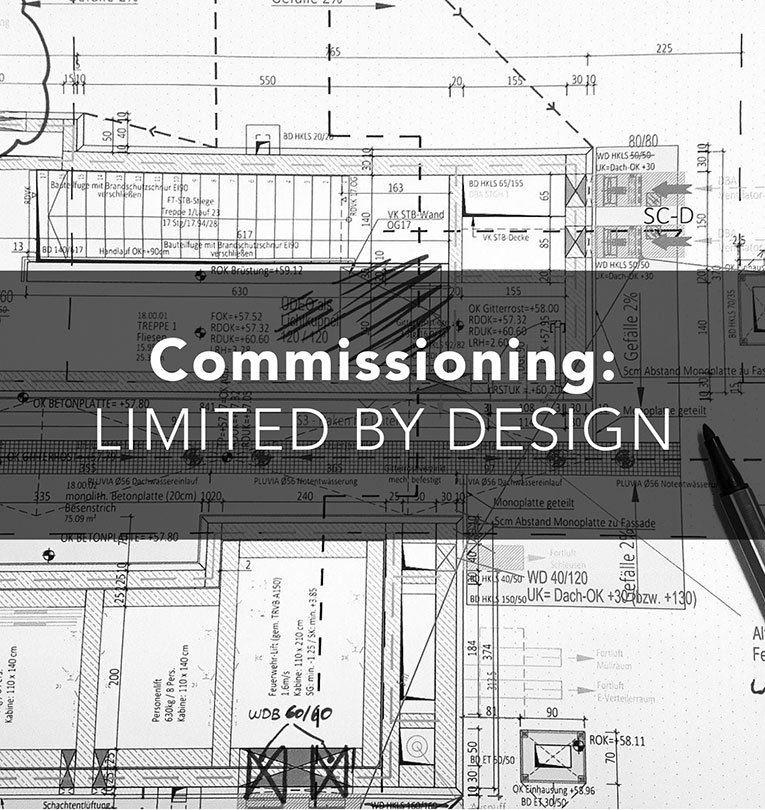What’s the purpose of commissioning? And why do commissioning agents have to stop short of fixing the issues they find? One of our Commissioning agents gives us some insight to these common questions about commissioning limits.
What’s the point of commissioning?
The idea behind building commissioning is to involve a 3rd party—not associated with the project design or construction — to verify that installed systems and equipment achieve the intent of the design. In the early stages of a project building owners typically work with architects and engineers to devise a project plan. The contractors take that plan and bring it to life. The commissioning agent’s job is to determine if the end result of the project matches the designed plans and achieves the owner’s project goals.
What’s the value of including commissioning in a project?
Attention to detail, or lack thereof, from everyone involved in a project can dictate how successful a project is. If there are errors in design details or contractors fail to follow the plans, the owner ultimately suffers. Commissioning providers add value by identifying and diagnosing these errors, and fostering communication between the design team and installing contractors to reduce the number of issues inherited by the owner at project turnover.
Why don’t commissioning agents just fix the issues they find?
When the identified issues are discussed, contractors sometimes seek sign off or direction from the commissioning provider. While willing to help find a solution, as a commissioning provider it would be irresponsible to assume authority in making decisions that fall within the expertise of the design team or other professionals. If the intent of the design does not seem to be achieved, it’s important that the right players are involved in the decision making process. Commissioning is limited by design.
Do you have a commissioning project question? Contact us at Connect for more info.



